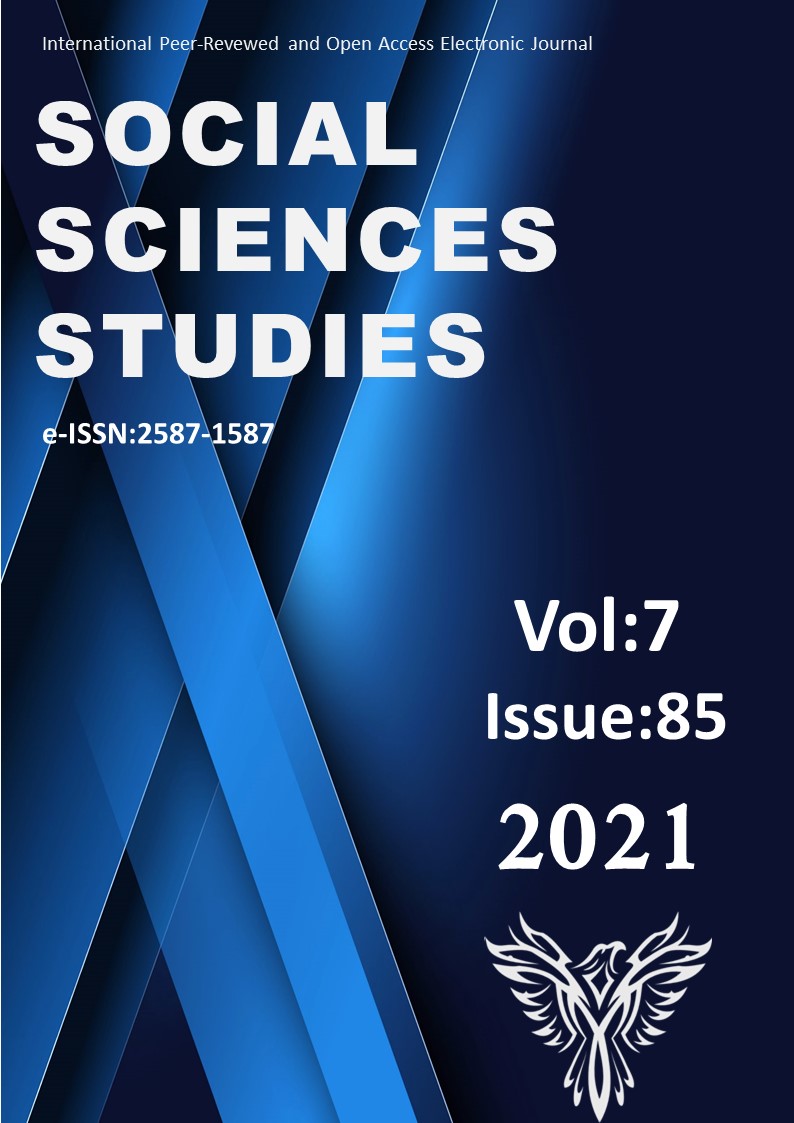Author :
Abstract
Bu çalışmanın amacı okul öncesi dönemi çocuklarda uyum ve davranış problemlerinin ortaya çıkmasında ve bu problemlerle mücadele sürecindeki aile rolünün öğretmen görüşlerine göre değerlendirilmesidir. Bu amaç doğrultusunda nitel araştırma yöntemlerinden olgubilim deseni kullanılmıştır. Çalışmada Elazığ il merkezinde görev yapan 40 okulöncesi öğretmenine 7 sorudan oluşan yarı yapılandırılmış görüşme formu uygulanmış ve elde edilen veriler içerik analizi ile değerlendirilmiştir. Öğretmenlerin sınıflarında sıklıkla hırçın olma, anneye bağlılık, ağlama ve paylaşımcı olmama gibi davranış problemleriyle karşılaştıklarını; bu problemlerle mücadele sürecinde çocuk ile konuşma, aile ile işbirliği, olumlu davranışı ödüllendirme, uzman görüşüne başvurma, sabırlı olma, güleryüzlü ve merhametli olma yöntemlerini sıklıkla kullandıklarını ve ailelerin çocuğa şiddet uygulama, mükemmeliyetçi olma, fazla ilgi gösterme, tutarsız ebeveyn tutumları ve ekonomik durumlarının düşük olması gibi davranışlarının çocuklarda uyum ve davranış problemlerinin ortaya çıkmasında etkili olduğunu ifade ettikleri tespit edilmiştir.
Keywords
Abstract
The aim of this study is to evaluate its role in the emergence of adaptation and behavioral problems in preschool children and in the process of combating these problems, according to teachers' opinions. For this purpose, phenomenological design, one of the qualitative research methods, was used. In the study, a semi-structured interview form consisting of 7 questions to 40 preschool teachers working in Elazığ city center and the data obtained were evaluated with content analysis, and it was found that teachers frequently encountered behavioral problems such as being aggressive, devoted to the mother, crying and not being sharing; In the process of dealing with these problems, they frequently use methods of talking with the student, cooperation with the family, rewarding positive behavior, consulting expert opinion, being patient, being friendly and compassionate, and that families often use the methods of violence, perfectionism, showing too much attention, inconsistent parental attitudes and low economic status. It has been determined that they stated that behaviors such as being present are effective in the emergence of adaptation and behavioral problems in children.





